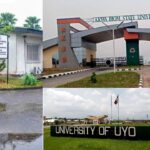How are you today? Before you say I’m fine and move along, take a minute and truly reflect. Are you really okay? Think about that for a minute or two.
This past weekend has been heartbreaking to say the least. Chadwick Boseman died. What a profound statement. Death is so… final. We anticipate that it’ll come but when it does, it’s still so shocking. Perhaps for a lot of people, his death was just another headline in a year full of headlines. To some of us though, we lost a hero. It was the end of an era, so to speak.
The hashtag that started trending after the announcement of his passing was #RepresentationMatters. Do you know what that means? Before his most iconic movie, Black Panther, was released, how many black superheroes did you know about? Did you ever associate black skin with heroism? He gave us that. Now, in the aftermath of this loss, young black children in this generation and beyond can watch Black Panther and see a hero in themselves. IMPACT.

Chadwick was the Black Panther. It was more than a role he played. It became a movement. When we wore our best outfits to movie theatres, we were going to Wakanda. I remember watching it at Ibom Tropicana and applauding every scene. When he said Wakanda Forever, everyone in that hall screamed it back. I mean, he had football players wearing black panther masks!
I’m so grateful for those memories.
K.I.N.D.N.E.S.S
Are you kind? Thoughtful? Non-judgemental?
When he was losing so much weight and seemed tired most times, did you join the dragging party on social media? Did he read your unkind words? Did you add to his pain?
The lesson here is to be kind. You don’t have to know what a person is going through to be thoughtful. So next time, when you want to make nasty comments about a person’s weight or appearance, check yourself. It’s not your concern unless they choose to share.
Loss. I’ve been thinking about it a lot.
Life really has no guarantees. No moment is promised. It’s important to be intentional about how we spend every moment. Be intentional about how you live, whom you love, what you eat, what you wear…the tiny details. Those are the things that outlive you. Chadwick was intentional about his last moments. Every movie role he took showed this. The choice to keep his illness private showed this. He made the life he wanted and in the end, he won. He exists, beyond death.

If you died today, would you still exist?
This article isn’t supposed to be a motivational speech or anything. It’s just a personal eulogy to a man I admired..still.
Wakanda Forever means something different now doesn’t it?
We’ll never forget, Our King. Hero. Fighter. Rest in Power.






